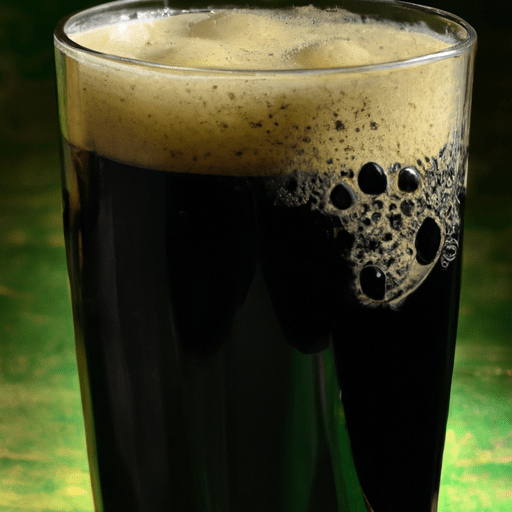The Bold and Beautiful Stout Beer: A Cooking Delight
Stout beer, with its rich and robust character, has long been cherished by beer connoisseurs worldwide. Beyond its popularity as a go-to drink, stout beer holds a special place in kitchens around the globe for its versatility in cooking. In this blog post, we will dive into the intriguing flavors, common culinary uses, nutritional benefits, and fascinating history of this dark elixir.
Taste That Tickles the Senses
Stout beer, known for its deep ebony hue and creamy head, boasts a complex flavor profile that tantalizes taste buds. The taste is often described as bold, malty, and pleasantly bitter. With hints of chocolate, coffee, caramel, and even a touch of smokiness, stout beer delivers a distinctive intensity that can elevate both sweet and savory recipes.
Expanding Culinary Horizons
The versatility of stout beer in the culinary world knows no bounds. Let’s explore some of its common uses:
1. Tenderizing and Marinating
The rich maltiness and acidity of stout beer make it an excellent choice for tenderizing tougher cuts of meat. The enzymes in the beer help break down the fibers, resulting in juicy, succulent meat. Additionally, its robust flavor makes it an exceptional marinade base for dishes like beer-braised short ribs or Guinness-infused chicken.
2. Flavor Enhancer in Sauces and Stews
Incorporating stout beer into sauces and stews imparts depth and complexity to dishes. From hearty beef stews to velvety chocolate sauces for desserts, the boldness of stout beer adds a distinctively delicious note that takes ordinary recipes to new heights.
3. Baking with a Twist
The unique flavors of stout beer can transform baked goods into indulgent treats. Dark, rich, and slightly bitter stout beer pairs harmoniously with chocolate in cakes, brownies, or even ice cream. Moreover, the carbonation in stout beer contributes to the leavening agent in bread, resulting in a delightful texture and enhanced flavor.
A Nutritional Powerhouse
While it is essential to enjoy stout beer in moderation, it does offer some surprising nutritional benefits. Stout beer contains essential minerals such as magnesium, potassium, and iron, contributing to overall wellbeing. Additionally, it is rich in antioxidants derived from the malt and hops used during brewing, which may have potential health benefits.
A Historical Journey
The roots of stout beer can be traced back to the 18th century in Ireland, where it gained immense popularity. The revered Guinness Brewery, founded by Arthur Guinness in 1759 and still operating today, played a significant role in the rise of stout beer’s prominence. Over time, other breweries worldwide began crafting their versions, each with its unique twist on this beloved beverage.
Fun Facts
Stout vs. Porter: The terms “stout” and “porter” were once used interchangeably. However, stout eventually evolved into a stronger, bolder version of the porter style beer.
The Creamy Head Secret: The signature creamy head of a well-poured stout is due to the presence of nitrogen gas rather than the usual carbon dioxide found in other beers. This gives stout beer a velvety-smooth texture.
A Touch of Oysters: In the past, oysters were sometimes used in the brewing process of stouts, lending a briny undertone to the beer’s flavor. While this authentic practice has diminished, oyster stouts pay homage to this historical tradition.
Stout beer’s journey from Irish taverns to modern-day kitchens has been nothing short of awe-inspiring. Its ability to enhance recipes with deep, complex flavors has made it a coveted ingredient among chefs and home cooks alike.
So, whether you’re simmering a savory stew or baking a luscious chocolate cake, consider reaching for a bottle of stout beer. Embrace the boldness, savor the character, and unlock a world of culinary possibilities with this dark elixir.
Cheers to the versatile and magnificent stout beer!
Sure! Here’s some interesting information about stout beer:
Origin: Stout beer is believed to have originated in the 18th century in London, England. It was initially a term used to describe a strong, or “stout,” version of porter beer.
Common uses: Stout beer is commonly enjoyed as a standalone beverage, but it’s also used in cooking. It can be used to enhance the flavor of stews, braises, and even desserts like cakes and ice creams.
Nutritional benefits: Stout beer contains several nutritional components. It is a source of B vitamins, such as niacin, riboflavin, and vitamin B6. It also contains antioxidants, which can help protect against cell damage caused by free radicals.
Unique properties: Stout beers are known for their dark color, typically ranging from deep brown to black. They are often brewed with roasted malts, which contribute to their rich and robust flavors. Some stout beers also have a creamy and smooth texture due to the addition of nitrogen gas during the brewing process, resulting in a cascading effect when poured.
Historical significance: Stout beer played a role in British history during the Industrial Revolution. It was a popular choice among the working class due to its nourishing qualities and relatively low cost, making it a staple in their diet. This led to the creation of iconic stout brands like Guinness, which still hold historical significance today.
Please note that while stout beer can provide certain nutritional benefits, it should be consumed in moderation, considering its alcohol content.




Use the share button below if you liked it.
It makes me smile, when I see it.